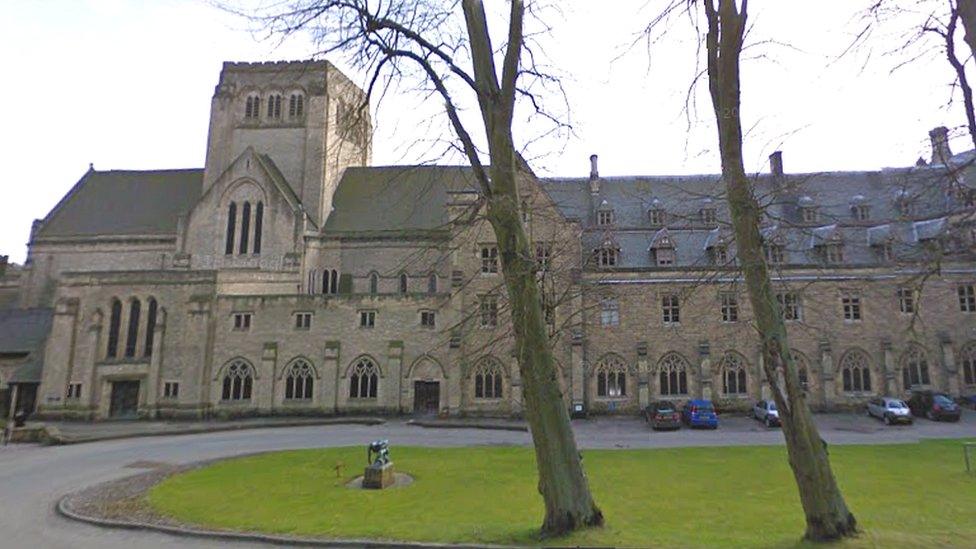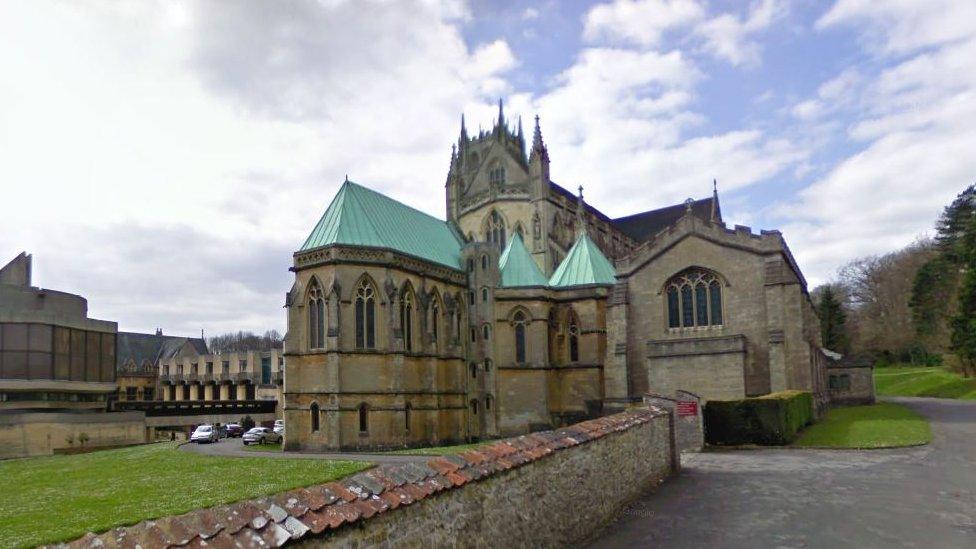Catholic church pupils 'still at risk of abuse'
- Published

Ampleforth College is one of England's leading Catholic schools, run by the monks of Ampleforth Abbey
Children at private Catholic schools could be "at risk" of sexual abuse despite years of efforts to root out predators, an inquiry has heard.
An independent inquiry is being carried out into abuse at institutions, including the Catholic Church.
Ampleforth School in North Yorkshire and Downside in Somerset are currently under scrutiny.
Representatives from both schools told the inquiry they apologised for past failings.
The inquiry heard child protection failures may remain, despite numerous inquiries and convictions.
More stories from across Yorkshire
The Independent Inquiry into Child Sexual Abuse (IICSA), headed by Alexis Jay, is aiming to scrutinise public bodies for child safety failings.
The Roman Catholic Church is one of 13 public organisations being scrutinised.
Counsel to the inquiry Riel Karmy-Jones said evidence suggested safeguarding problems were still ongoing and children may "inevitably" remain at risk.
She said in many instances, church officials chose to keep abuse quiet while families were pressured not to report assaults, offenders were shifted to different establishments unpunished, and complaints were simply ignored.
Previous inquiries into Catholic Church schools such as Ampleforth have revealed behaviour ranging from rape to voyeuristic beatings over many years, and resulted in convictions.
Predators include teacher David Lowe, jailed in 2015 for 10 years for 15 indecent assaults on boys under 14.
Lowe's offences were traced back to the 1980s at Westminster Cathedral School and Ampleforth.

Downside Abbey is in Stratton-on-the-Fosse in Somerset
Richard Scorer, representing 27 people who are core to the inquiry, told the hearing some schools hid offending "out of reputational concerns" and said many relied on fees so could not risk exposing misconduct, which in turn made them "honeypots" for multiple offenders.
"Because we have no mandatory reporting law, that temptation to cover up, in our view, remains undiminished today," he said.
"Institutions will tell you things are different now but the question you have to ask is this:
"When all the fuss has died down, can we really rely on these institutions voluntarily to ensure that they never slip back into old habits, even though the old temptations exist today as they surely did before?"
'Deeply sorry'
Matthias Kelly, representing Ampleforth, offered a "sincere and heartfelt apology to anyone who has suffered abuse whilst in our care".
He added: "All students, past and present and future, are entitled to expect that they will be safe and cared for by us - I am deeply sorry that this was not always the case.
"We wish to apologise for the hurt, injury, distress and damage done to those who were abused as a result of our failings."
He said the school would "strive with every fibre of our beings to alleviate the damage done "and, he said, "ensure that we do everything we can to ensure there is no repetition".
Kate Gallafen, representing the English Benedictine Congregation and Downside school, also expressed the remorse of both institutions.
She said a review and audit of safeguarding procedures had been commissioned at Downside, which will be carried out by the Social Care Institute for Excellence.
The inquiry is due to hear three weeks of evidence looking at the two institutions.